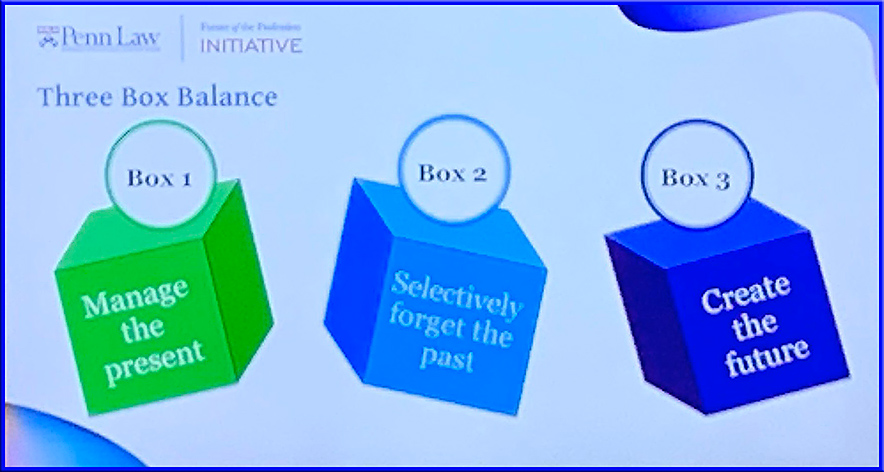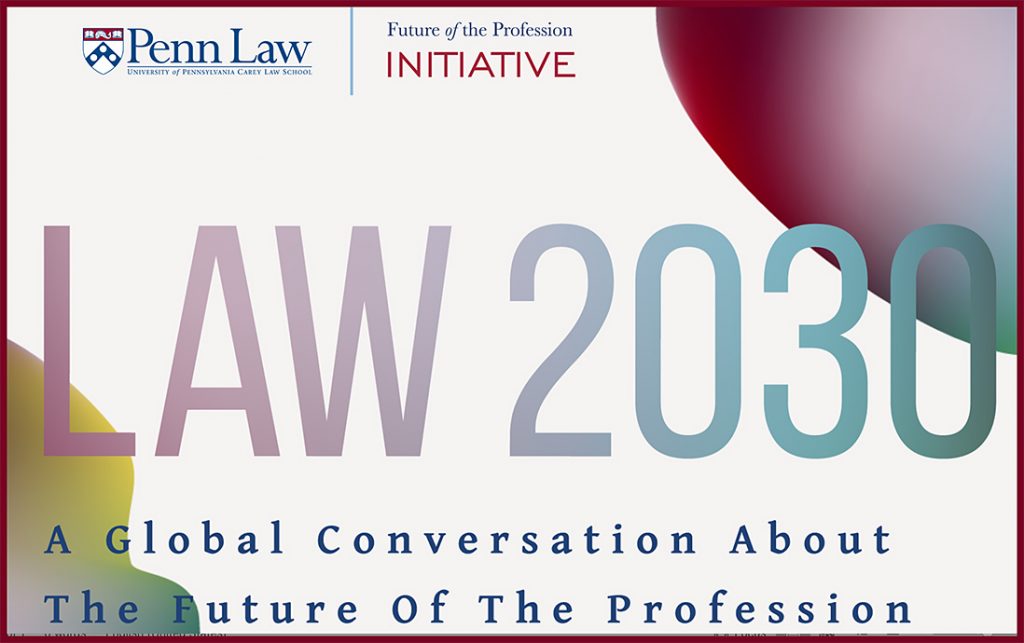“Strategy is about folding the future back – it’s not about pushing the present forward!”
Vijay Govindarajan, keynote speaker
at today’s Law 2030 event;
also see the recording here
You can also find video of Day 1 here and Day 2 here.
The PowerPoint slides from each presenter are available at https://www.law2030.org.
From DSC:
The keynote at this morning’s Law 2030 event was done by Vijay Govindarajan, Coxe Distinguished Professor at Dartmouth College’s Tuck School of Business. Vijay offered up a great presentation that reminded me to:
- THINK BIG!
- Establish a sizable possibility gap!
- Have unrealistic goals!
- Don’t limit your future accomplishments with current expectations!
- Strive to live to your potential!
His keynote made me think of this graphic from a while back:

Below is one of the slides from his talk:

Also see the Law2030 hashtag over on Twitter.









